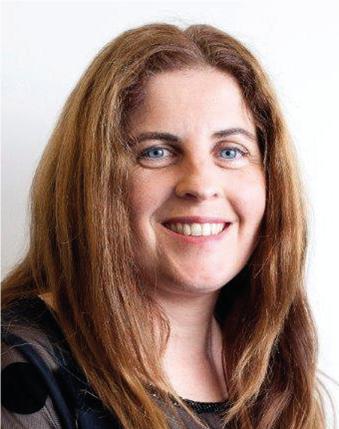“None Of Us Ever Stop Learning – Make Sure Your NQTs Know It”

Michelle Haywood argues that experienced teachers should take on more of a role in helping NQTs develop their knowledge and skills around SEND…

On The Great British Bake Off, amateur bakers are given three challenges – a ‘signature bake’, a ‘technical challenge’ and a ‘showstopper’. The bakers are given planning time for their signature and showstopper bakes and can practice these at home. The technical challenge, however, is a blind test – the one challenge where very little information is provided.
The instructions may include specific words, such as ‘cream or’ ‘whisk’ or simply consist of ‘Bake a sponge’. The bakers are expected to have enough knowledge about baking to understand and undertake the task effectively.
ITT is just the start
As an NQT takes ownership of his or her classroom for the first time, they too face a technical challenge of their own. A new teacher on an initial teacher training programme will have started their teaching journey by essentially choosing a recipe book and modelling the skills and styles it suggests, but they won’t have had time to learn all of the book’s technical vocabulary and put it into practice.
NQTs will undertake around 120 days of teaching practice on an ITT course, teaching another teacher’s classes while working within existing structures and routines and following schemes of work created by someone else. The NQT will then have a class of their own. This will be the first time that they’ll have worked with a class from the beginning of the year or term – and it may not be until they first open the door to their own classroom that they find some of the key components they need are missing.
One such component is the ability to work within SEND processes. All ITT programmes address SEND, and are obliged to prepare all new teachers to be able to support SEND in their classrooms – yet the SEND content on ITT programmes tends to sit alongside other important and equally valid aspects of classroom preparation, such as planning and assessment, child development and learning, behaviour management, early reading, using evidence and research to inform teaching, and more besides. A teacher’s ITT programme ought to be considered a starting point, with responsibility for the next stage of the journey falling to both the NQT’s school and the NQTs themselves.
Keep NQTs in the know
Following the SEND reforms of 2014 and their focus on ensuring that ‘Every teacher is a teacher of SEND’, continuous evaluation of SEND processes and provision should now be a feature of every school’s SDP. NQTs are expected to be part of this process, but they should also have a separate professional development plan of their own – one that focuses on their development as a class teacher and ability to support pupils with SEND.
Existing teachers will already know what ‘Best Endeavours’ are and who the designated SEND coordinator in their school is. NQTs need to know how their school assesses the progress of pupils, how it identifies those pupils making less than expected progress, what this looks like and what interventions are available to support pupils.
An NQT will have a mentor during their induction year, who may or may not be the school SENCo. If the SENCo is not involved in the support package, this should be adjusted to make them an integral part. The school SENCo won’t be planning all the interventions for each individual class, but they will have an overview and knowledge of the provision that’s taking place and what strategies can be used. This overview should form the first part of an NQT’s induction process; thereafter, the SENCo and mentor should develop a specific support plan for SEND that includes sessions on the following three areas:
School policy
Looking at how SEND pupils are identified, how they’re supported and the procedures used for statutory assessment. Make sure your NQT knows what provision is available across the school and how it’s allocated – what is there for the year group or subject that the NQT is currently working with?
NQTs should also be familiarised with how to gather evidence to demonstrate a pupil’s need (both formally and informally), be able to undertake an ‘assess, plan, do, review’ cycle and show that they know how to manage TAs – and cope without them, if needs be.
SEND Process & Procedures
NQTs should understand the process of acquiring an education, health and care plan and the statutory responsibilities around them. They should also be taught how to integrate individual targets into lesson planning and assess pupils who aren’t working within the National Curriculum. Many schools still use P levels, while others employ other methods.
Learning from others
Plan in times for visiting other classrooms throughout the school, and ideally other schools too. When sitting in on colleagues’ lessons, NQTs should observe the support that pupils with SEND are receiving, how the room is organised and what resources are being used.
Spend some time looking at children’s individual support plans and ask different class teachers to explain their approach to supporting the different needs of individual pupils within their classrooms. Explore opportunities to meet with external agencies and professionals, such as educational psychologists and speech and language therapists. It can also be helpful to visit specialist settings, such as special schools and PRUs
Managing personal professional development
Encourage your NQTs to read key publications such as TES, Guardian Education and Schools Week (and indeed SENCo) and consider joining organisations such as The Chartered College of Teaching, Nasen and the British Dyslexia Society.
Sign up to receive news updates from Ofsted, the DFE and any other organisations with a SEND focus, such as Whole School SEND (wholeschoolsend.com) and the Driver Youth Trust (driveryouthtrust.com). They also should try and attend networking events, including TeachMeets (teachmeet.pbworks.com) and #ResearchSEND events.
That said, when supporting an NQT it’s important to ensure they don’t become overwhelmed. Impress upon them that when entering and making our way in the teaching profession, none of us ever stop learning – there will always a new recipe or variation to learn.
Date for the diary
The next #ResearchSEND event takes plance on 18th November at Sheffield Hallam University; to add yourself to the event’s mailing list, email your request to fehwevents@wlv.ac.uk with ‘ResearchSEND’ as the subject line.
About the author
Michelle Haywood is a SEND consultant, a senior lecturer for primary education at the University of Wolverhampton and the co-founder of #ResearchSEND







